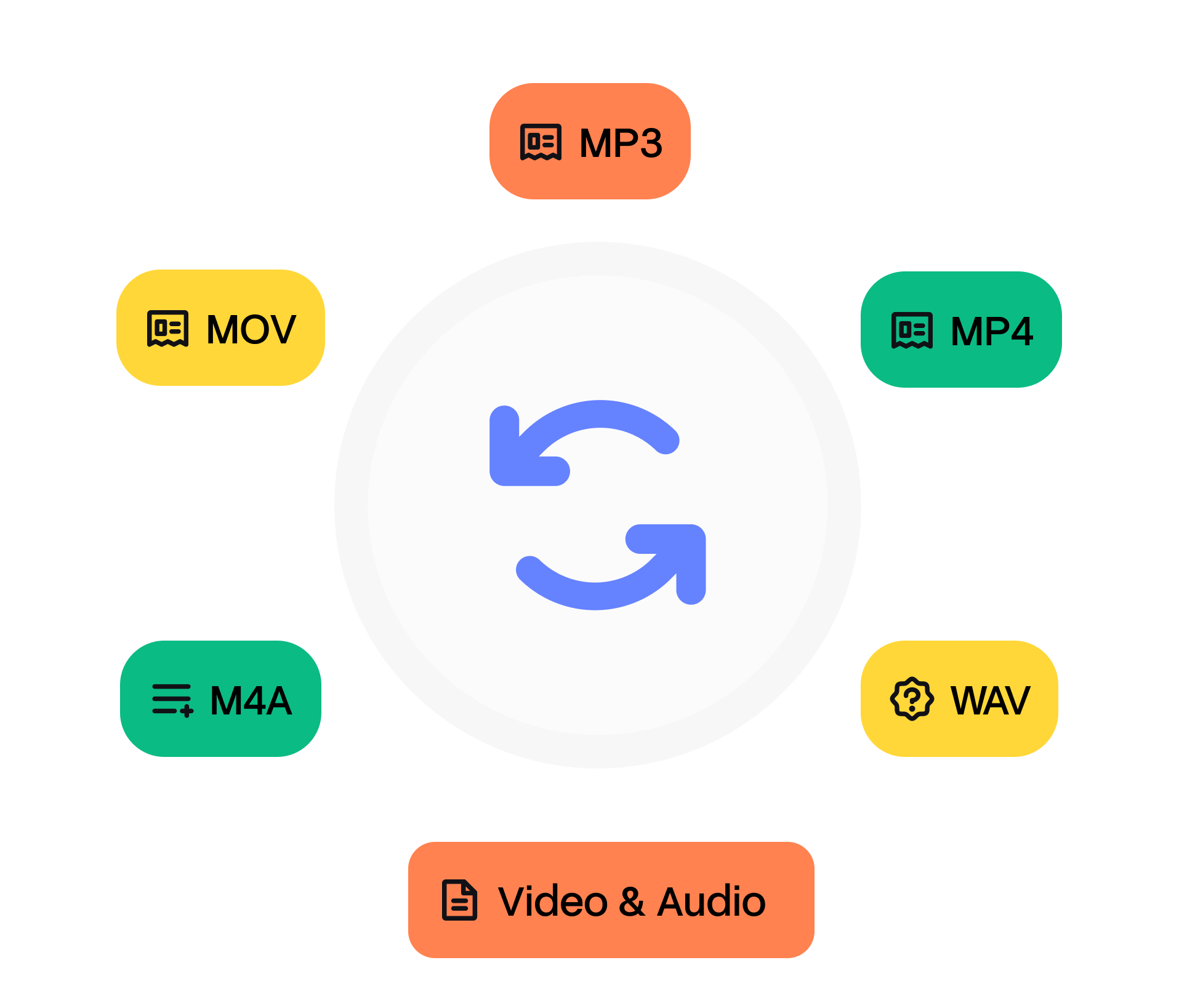1. Upload your MKV file
Start by dragging and dropping your MKV file into the upload area, or click to browse your device and select your file in the list.
Convert your MKV (.mkv) file to MOV (.mov) in seconds straight from your browser. No installs. No watermarks. 100 % free.
Convert from MKV to MOV but also 47+ other formats.
No signups, no fees, no hidden restrictions. Convert MKV to MOV directly in your browser for free.
We take your security seriously. All file transfers use 256-bit SSL encryption.
No installs needed; convert MKV to MOV right from your browser, on any device, anytime.
Start by dragging and dropping your MKV file into the upload area, or click to browse your device and select your file in the list.
Next, pick MOV as the format you’d like to convert your video into. Alternatively, we support +47 formats that you can choose from. When you’re ready, hit the Convert button.
Once the conversion is complete, you’ll get a download link right away. Just click to save the file to your device. It’s fast, easy, and doesn’t require any software installation.

Matroska Video (MKV) is a flexible open container that can accommodate virtually any codec, multiple subtitle tracks, and chapter points. It is built on EBML (Extensible Binary Meta Language), a binary cousin of XML, allowing unlimited, self‑describing elements. The project began in 2002 after developer Steve Lhomme forked the failed MCF container. With the explosion of H.264 ‘fansubs’, MKV became the default wrapper for anime communities, bundling soft‑subs and styled karaoke effects. In 2013 Matroska was standardised within the IETF as the basis for WebM, cementing its longevity.
MOV is Apple’s QuickTime File Format (QTFF) container. It stores media and edit lists as separate atoms, enabling non‑linear jumps and reference movies that point to external assets. Although often associated with ProRes, it can wrap anything from PCM to HEVC. QuickTime debuted in 1991, pioneering desktop video at 160×120 pixels. The MOV container layered edit metadata timecode, clean aperture on top of raw tracks, influencing the later MP4 standard. Today .mov persists in DSLR and cinema cameras because the atom structure maps neatly to industry workflows.
Need to convert your audio file from MKV to MOV? It’s simple. Just upload your file, choose the output format, and click ‘Convert’. That’s it — no downloads, no complicated software, and no hidden costs. Our tool is designed to be fast, secure, and completely free, so you can turn your files into the format you need in seconds.
Whether you’re converting audio for sharing, editing, or playback on different devices, our converter ensures high-quality output every time. After your conversion, you’ll also have the option to transcribe video to text, making it easy to turn your MOV files into accurate, editable text in just a few clicks.
VLC, MPV, and Kodi handle MKV flawlessly on every OS. Editing suites such as DaVinci Resolve import common codecs like H.264 or ProRes within MKV, but for delivery you may still export MP4. MKVToolNix lets you split, merge, and tag tracks without re‑encoding.
QuickTime Player, Final Cut Pro, and Adobe Premiere read .mov natively. On Windows, install Apple ProRes or Grass Valley HQ codecs for professional footage. If compatibility is an issue, re‑wrap to MP4 with `ffmpeg ‑c copy input.mov output.mp4` (no recompression).
Other tools